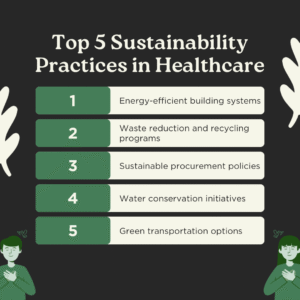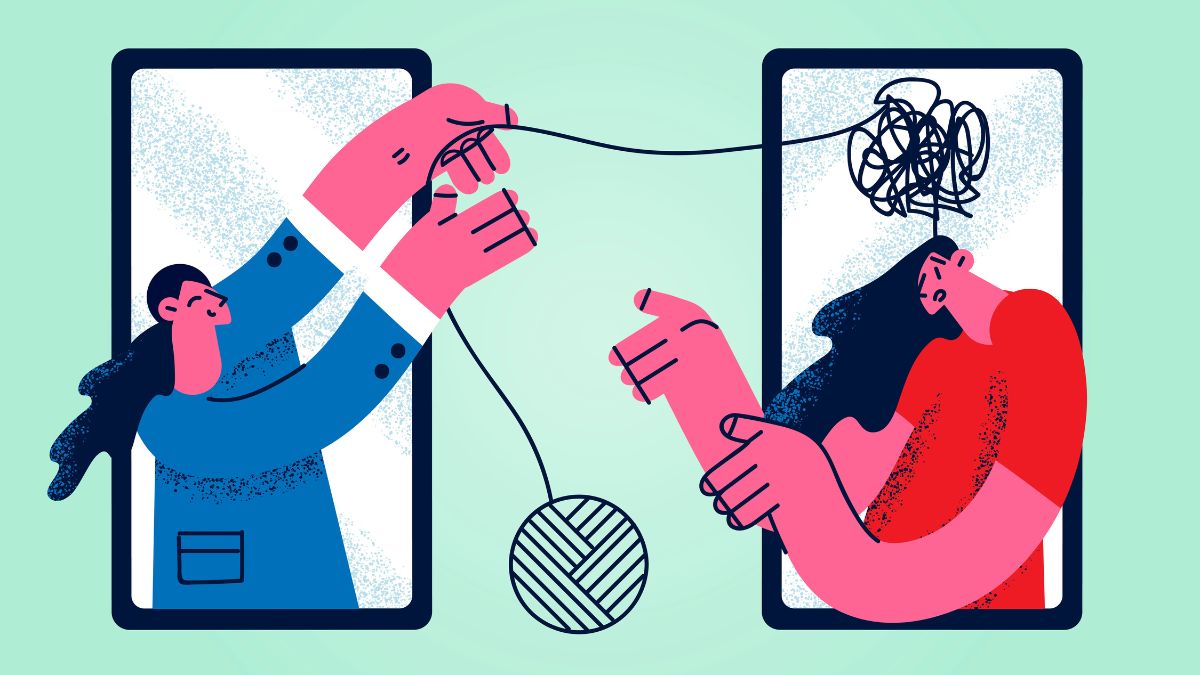HEALTH
What Are the Top Trends Shaping the Future of Healthcare

The healthcare field continues to develop because novel technologies and methods, and improved patient care models appear regularly. Medical organizations need to evolve their practices to address both rising patient demands and increasing healthcare costs, as well as workforce deficits. Medical facilities that implement innovation to gain both operational advantages and improved patient results while achieving maximum efficiency.
Many healthcare trends include artificial intelligence as well as telemedicine which transform the way healthcare operates. Every industrial aspect receives transformation from these industry shifts which extend into diagnostic practices and patient care delivery methods. The prediction of emerging healthcare trends enables health professionals to adjust their practices to provide high-quality care throughout this transformational period.
Advancing Healthcare
The healthcare industry relies on data, technology, and best practices to improve patient care. One key trend is using effective enhanced communication and streamlining patient documentation. Properly structured medical records improve accuracy and efficiency, reducing the risk of misdiagnosis or treatment errors.
Healthcare professionals now use different technological systems to communicate with their patients. A 2023 report by the American Telemedicine Association reveals telehealth visits have risen 38% since last year, thus expanding remote healthcare accessibility. The World Economic Forum projects that artificial intelligence systems will minimize hospital readmissions by twenty percent through advanced analytics for individualized treatment solutions.
1. Artificial Intelligence in Healthcare
The healthcare sector experiences transformation because artificial intelligence performs administrative work and medical data analysis along with diagnostic support. Machine learning systems enable the early diagnosis of diseases, thus improving patient treatment success rates. The tools powered by AI improve operational efficiency for healthcare providers, thus decreasing the level of physician burnout. Medical institutions use AI technology for new drug research and medical image analysis in addition to creating personalized treatments for patients.
The healthcare industry is increasingly relying on data-driven technologies, such as artificial intelligence (AI), to improve efficiency and accuracy across various operations. AI is streamlining processes, from administrative tasks to diagnostic support, enhancing decision-making, and reducing physician burnout. Medical centers should develop AI capabilities in their operations because the expansion of AI technology makes it necessary to remain competitive and deliver better patient healthcare.
One area seeing notable progress is mental health, where digital tools and remote services are expanding access and improving outcomes. As more healthcare providers treat anxiety and related conditions through telehealth platforms, accurately documenting and coding these encounters becomes essential. Using the Right ICD-10 Code for Anxiety ensures proper diagnosis, billing, and continuity of care, highlighting the growing importance of integrating technology with standardized medical practices in a rapidly evolving healthcare landscape.
2. The Rise of Telehealth and Virtual Care
Telehealth has become a permanent fixture in modern healthcare. Patients now expect convenient access to medical professionals without visiting a clinic. Virtual consultations allow for remote diagnosis, follow-up care, and chronic disease management.
Healthcare systems are investing in telehealth infrastructure to expand access to underserved populations. Insurance providers are also adapting, offering coverage for virtual visits to accommodate patient preferences. As telemedicine evolves, healthcare will become more accessible and cost-effective.
3. Personalized and Precision Medicine
Personalized medicine tailors treatments to individual patients based on genetic, lifestyle, and environmental factors. Advances in genomics and biotechnology make it easier to develop targeted therapies for various conditions.
Cancer treatment has benefited greatly from precision medicine, with therapies designed to attack specific cancer cell mutations. This approach improves efficacy while reducing side effects. As genetic research progresses, more personalized treatment options will emerge for other diseases.
4. Integration of Big Data and Analytics
Big data is transforming healthcare by providing insights into patient trends, treatment effectiveness, and disease outbreaks. Hospitals use data analytics to optimize resource allocation and predict patient needs.
Real-time data monitoring helps prevent complications in high-risk patients. Predictive analytics also assists in managing hospital capacity, ensuring that healthcare facilities operate efficiently. Providers that harness big data can make evidence-based decisions to improve patient care.
5. Blockchain for Secure Medical Records
Blockchain technology is enhancing data security and interoperability in healthcare. Patient records stored on blockchain networks are immutable, reducing the risk of tampering or unauthorized access.
Healthcare providers are adopting blockchain to streamline data sharing while maintaining compliance with privacy regulations. As cybersecurity threats increase, blockchain will play a crucial role in protecting sensitive medical information.
6. Robotics in Surgery and Patient Care
Robotic-assisted surgeries allow for greater precision, reducing recovery times and improving surgical outcomes. Surgeons use robotic systems for minimally invasive procedures, leading to fewer complications.
Beyond surgery, robots assist in patient care, rehabilitation, and medication management. Automation in healthcare facilities helps reduce staff workload while improving efficiency. Robotics will continue to expand its role in both clinical and non-clinical settings.
7. Wearable Technology and Remote Monitoring
Wearable health devices track vital signs, physical activity, and sleep patterns. These devices help patients manage chronic conditions and alert healthcare providers to potential health issues in real-time.
Remote patient monitoring reduces hospital admissions by allowing doctors to intervene early when health metrics show concerning trends. Wearables will play a larger role in preventive healthcare, empowering patients to take control of their well-being.
8. Digital Therapeutics and Mobile Health Apps
Digital therapeutics use software-driven treatments for managing chronic diseases. Mobile health apps provide patients with tools to monitor symptoms, track medications, and receive virtual coaching.
Behavioral health apps help with mental health conditions like anxiety and depression by offering guided therapy sessions. The demand for digital health solutions will continue to grow as patients seek convenient ways to manage their health.
9. Sustainability and Green Healthcare Practices
Healthcare facilities are focusing on sustainability to reduce environmental impact. Hospitals are adopting energy-efficient technologies, waste reduction programs, and eco-friendly building designs.
Sustainable healthcare practices benefit both the environment and operational costs. Green initiatives also appeal to patients who prioritize environmentally responsible healthcare providers.

10. Expansion of Mental Health Services
The demand for mental health services has surged in recent years. Healthcare systems are integrating mental health care into primary care settings, making it easier for patients to access support.
Teletherapy, mental health apps, and AI-driven chatbots provide additional mental health resources. Expanding mental health services ensures that patients receive holistic care, addressing both physical and psychological well-being.
11. Advancements in Regenerative Medicine
Regenerative medicine, including stem cell therapy and tissue engineering, is making significant strides. Researchers are developing treatments that promote the body’s natural healing processes.
This field holds promise for conditions such as spinal cord injuries, organ failure, and degenerative diseases. As research progresses, regenerative medicine will become an essential part of modern healthcare.
12. 3D Printing in Healthcare
3D printing is revolutionizing medical device production. Hospitals use 3D printers to create custom prosthetics, implants, and even organ tissues.
Personalized medical devices improve patient outcomes by offering tailored solutions. As 3D printing technology advances, its applications in healthcare will continue to expand.
13. The Future of Healthcare Workforce Development
The healthcare industry faces workforce shortages, prompting the need for innovative training solutions. Virtual reality (VR) and augmented reality (AR) simulations provide immersive training experiences for medical professionals.
AI-driven education tools help train healthcare workers more efficiently. Workforce development strategies ensure that healthcare systems have skilled professionals to meet growing patient demands.
Frequently Asked Questions
- How can healthcare providers prepare for AI integration?
Healthcare providers should invest in AI training programs, update data management systems, and partner with AI-driven health tech companies to ensure a smooth transition. - What role does telehealth play in rural healthcare access?
Telehealth bridges the gap for rural communities by providing virtual consultations, reducing travel burdens, and ensuring timely medical care. - How can hospitals implement blockchain for medical records?
Hospitals should collaborate with blockchain developers, establish secure digital identities for patients, and integrate blockchain with existing electronic health record (EHR) systems.
Conclusion
The future of healthcare is shaped by technological advancements, data-driven decision-making, and patient-centered care. From AI-powered diagnostics to sustainable hospital practices, these trends will redefine how healthcare providers operate.
Organizations that stay ahead of these trends will deliver superior patient outcomes, improve operational efficiency, and remain competitive in an evolving healthcare landscape. By embracing innovation, the industry can continue to enhance the quality of care while adapting to new challenges.
HEALTH
How Psychiatric Urgent Care Differs from Traditional ER Visits for Mental Health

Just as physical health emergencies, mental health crises can also occur at any moment and have to be taken care of as early as possible. But when individuals show up with acute psychiatric symptoms, such as severe anxiety, suicidality, or psychosis, they frequently go to emergency rooms (ERs) that are less than optimally constructed to address their needs.
This article discusses some of the major distinctions between psychiatric emergency care and typical emergency room visits, and how the two settings treat people with psychological distress.

The Environment
In contrast to receiving immediate therapy online, ERs are usually crowded, confusing, and full of patients with various health care emergencies, with some seriously ill patients (with fractured bones) and others (with heart attacks). To a person who is already in a weak mental state, such multi-sensory saturation may result in increased anxiety, confusion, or fearfulness.
Among the most obvious and evident contrasts between psychiatric urgent care centers and regular ERs, the atmosphere should be considered.
Typically, the location of the traditional ERs will have:
- High sound and shining lights
- Waiting rooms that are packed
- Mixture of medical emergencies (e.g., trauma and cardiac incidents)
- Stressful environment (both staff and patients)
In a contrasting manner, a psychiatric urgent care centers provide:
- Noise-free, relaxing, spacious rooms with semi-dim light and pale-colored walls
- Smaller rooms that offer respite where there is sensory overload (especially in the case of semi-private rooms )
- Easy chairs that will make one feel easy and relaxed
These design factors help in the provision of a therapeutic environment that allows de-escalation and stabilization of emotions. It is only this environment that can make serious contributions in the healing process before the actual treatment is given.
The Staff
Traditional ERs and psychiatric emergency care centers look extremely dissimilar in terms of personnel specialization and orientation.
In the conventional ERs, the workforce usually comprises:
- Doctors and nurses who work in emergencies
- General practitioners
- Poor or slow availability of psychiatric consultants
- Experts who practice mainly in physical health crises
The following are the staff members of psychiatric urgent care centers:
- Psychiatric nurse practitioners and psychiatrists
- Medical care, social workers, and therapists
- Crisis counselors for mental health crises
- Employees who perform trauma-informed care and de-escalation practices

Treatment Approach
Another important difference has to do with the care approach to a mental health crisis. In recent years, mental health disorders such as anxiety and bipolar disorder have increased by almost 40%.
A treatment in a classical ER can include:
- Stabilization and monitoring
- Use of medicine to treat the acute manifestation
- Referring to the external psychiatric services is usually done in an uncoordinated manner
- Scant or no treatment
The mental health urgent care centers shall usually provide:
- Full Psychiatric assessment
- On-the-spot therapy (individual, group, or family)
- Crisis management and short-term planning of treatment Short-term planning of treatment
- Psychiatric control of medication within the site itself
- Designing an integrated care plan
Wait Times and Accessibility
Delays to care and waiting lists in terms of patient outcomes can have an enormous impact on mental health emergencies.
In classic ERs, there is a possibility of:
- Wait time, especially when triaged behind physical emergencies
- Overcrowded mental health units with few resources
- Psychiatric services have limited availability of operating time
- Timecare barriers
The mental health ER can provide:
- Reduced wait times emphasized the psychiatric need
- Urgent mental health needs that can be accessed on a walk-in basis
- Evenings and weekends, as well as extended hours
- More time-effective contact with specialist personnel
Follow-Up Care
Continuity of care will be important in terms of delivering long-term stability and recovery following the initial crisis.
ERs tend to give little follow-up to include:
- General discharge prescriptions
- Referrals to community mental health care giver
- No definite form of continuity of care
- Potential loss of patients in the cracks
Psychiatric urgent care centers, such as those from Mindful Care, are preoccupied with:
- Discharge planning in detail
- Referring to continuing treatment and mental treatment
- Access to the community resources and groups of support
- In other instances, brief follow-up treatment or drug counselling
Conclusion
A major innovation in the practice of mental health crises is the psychiatric urgent care centers. Although traditional emergency rooms will always be an important resource to provide treatment to people in life-threatening or co-occurring physical emergencies, it is not always geared appropriately to address psychiatric emergencies fully.
Some of the strengths of psychiatric urgent care are:
- Mental wellness-sustaining environments: Specialist environments
- Specially hired mental healthcare workers within the organization
- Individual and instant treatment for mental health
- Less time and more coverage
- Enhanced continuity of care in the form of coordinated follow-up
Psychiatric urgent care constitutes care between outpatient behavioral therapy and inpatient hospitalization, acting as a middle ground, focuses on patient dignity, expertise, and early intervention. Better outcomes and a more humane mental health care process are the promise of this model to individuals, families, and communities.
HEALTH
Natural Ways to Support Oral Health Through Diet

Why Diet Matters for Oral Health
What you eat doesn’t just impact your weight and energy, it shapes your smile too. Nutrition plays a crucial role in teeth straightening and the health of your gums.
The mouth is the starting point of the digestive system, and it’s often one of the first places where nutritional imbalances show up. Deficiencies can weaken enamel, trigger inflammation, and increase your risk of gum disease. But a nutrient-rich, well-balanced diet does the opposite; it helps your body protect and rebuild.
In this blog, you will come to know about key nutrients that support oral health, foods that help clean your teeth naturally, the surprising impact of food texture on alignment, and how to support your smile while you sleep.
Nutrients That Strengthen Teeth and Gums
Let’s start with the essentials. Your teeth and gums need specific vitamins and minerals to stay strong and healthy, especially if you’re aiming for long-term oral wellness.
- Calcium and Phosphorus
These minerals help build and maintain enamel, the protective outer layer of your teeth. They also strengthen the jawbone, which holds your teeth in place.
Sources: dairy products like milk and yogurt, leafy greens, almonds, tofu, and fish like sardines. - Vitamin D
Even if you get enough calcium, your body won’t absorb it well without vitamin D. This nutrient also plays a role in reducing gum inflammation.
Sources: sunlight exposure, mushrooms, and fatty fish like salmon. - Vitamin C
Vital for gum health, vitamin C supports collagen production and protects against gum inflammation and bleeding.
Sources: citrus fruits, strawberries, bell peppers, broccoli, and kiwi. - Antioxidants
Antioxidants help protect your gums from oxidative stress and reduce the buildup of harmful bacteria.
Sources: green tea, blueberries, cranberries, dark chocolate, and spinach.
The Role of Food Texture in Jaw Development
The strength and alignment of your jaw aren’t genetic. The consistency of your food, especially during childhood, plays a huge role in shaping your facial structure.
Soft and processed foods require minimal chewing. Over time, this can lead to weaker jaw muscles and narrower dental arches. Harder fibrous foods require more effort and promote stronger jaws and better bone density.
Diet plays a significant role in jaw development. A well-aligned jaw supports straight bottom teeth, reducing the chances of dental crowding or orthodontic issues later in life.
In fact, a study published in the National Library of Medicine observed that children who regularly consumed harder, textured foods developed better mandibular control and chewing efficiency, indicating more robust muscle and bone development in the jaw.
Whole foods like raw carrots, celery, apples, sugar-free foods, and whole grain bread not only challenge your teeth, but they also help strengthen the muscles around them and encourage healthy oral posture.
Foods That Naturally Clean the Mouth
Some foods act like natural toothbrushes and mouthwash, helping reduce plaque, freshen breath, and support enamel without the need for chemicals.
- Crunchy fruits and vegetables
Raw apples, carrots, and celery scrub the surface of your teeth and stimulate saliva production, which helps wash away food particles and neutralize acids. - Water-rich foods
Cucumbers, melons, and leafy greens help keep the mouth hydrated and flush bacteria away. The more you chew them, the more saliva your mouth produces, which is your body’s first defense against decay. - What to avoid
Sugar, soda, processed starches, and acidic foods like citrus or vinegar-based snacks can erode enamel over time. Coffee and red wine can also stain teeth and dry out the mouth.
Every bite either helps or harms your oral environment. Choosing fibrous, water-dense foods can make a small but steady difference.
Nighttime Oral Health: Diet and Protection
Your mouth gets through a lot while you sleep. If you clench your jaw, breathe through your mouth, or eat too close to bedtime, your teeth may suffer. Fortunately, good nutrition can solve these problems
- Magnesium-rich foods
Magnesium helps relax muscles and nerves, which may reduce nighttime jaw tension or clenching.
Helpful options: almonds, bananas, avocados, pumpkin seeds, and leafy greens. - Hydration
Dry mouth at night increases the risk of cavities. Drinking water in the evening, especially after your last meal, helps prevent bacteria.
Using a night guard after a healthy evening diet can protect your teeth from grinding and erosion while you sleep. It creates a physical barrier and absorbs pressure from unconscious clenching, keeping your enamel safe and your jaw more relaxed.
While diet plays a supporting role, a night guard is often necessary for those dealing with bruxism or teeth grinding.
Bonus Tips for a Diet-Supported Oral Routine
Even the best diet needs good habits alongside it. Consistency in both food choices and habits is what ultimately makes the difference. These daily tips can enhance your efforts and help your smile last longer.
- Don’t brush right after acidic foods
Acid temporarily softens enamel, and brushing too soon can cause more damage. Wait at least 30 minutes. - Rinse after meals
If brushing isn’t possible after lunch or snacks, rinsing your mouth with water can help reduce food particles and acids. - Chew sugar-free gum
This stimulates saliva and may reduce dry mouth and bad breath. - Try saltwater rinses or oil pulling
While not replacements for brushing, they can be gentle supplements to your oral hygiene, especially if your gums feel sensitive. - Avoid constant snacking
Frequent eating, even of healthy foods, keeps your mouth in a low-level acidic state. Give your mouth breaks between meals.
Wrap Up
Healthy teeth aren’t just about toothpaste and dental visits. They are built every day, meal by meal. What you eat feeds the tissues, bones, and systems that support your smile.
By focusing on nutrient-dense foods, staying hydrated, choosing textures that challenge your jaw, and avoiding sugar overload, you create an oral environment that heals instead of deteriorates.
Whether you’re trying to maintain straight bottom teeth, reduce nighttime grinding with a night guard, or simply feel more confident in your smile, the food you choose matters more than you think.
It’s not about perfection. It’s about making smarter, more intentional choices every day. Because your mouth isn’t separate from your body, it’s the first part of your health journey.
Let it start with what’s on your plate.
HEALTH
Exploring Your Options: Finding the Right Depression Treatment That Works for You

Depression is more than just feeling sad or unmotivated—it’s a serious mental health condition that affects how you think, feel, and function in your daily life. Whether you’re experiencing persistent sadness, loss of interest, fatigue, or hopelessness, it’s important to know that depression treatment is available—and it works. National health organizations such as the national institute and health and human services provide guidelines and resources to support effective depression treatment.
At Syncare Behavioral Health, we understand that no two individuals experience depression the same way. It is important to have depression diagnosed by a primary care doctor or mental health professional, as early assessment can lead to better outcomes. Human services organizations and the mental health services administration offer valuable resources for those seeking help and support. That’s why we offer a range of personalized options to help you regain your balance and move forward.
Understanding Major Depressive Disorder: You’re Not Alone
Millions of people worldwide struggle with depression every year. It can be triggered by life events, trauma, chemical imbalances, or appear without any clear reason. Whether you’re dealing with major depressive disorder, postpartum depression, or seasonal depression, effective treatment for depression is within reach. Major depression is a serious mental disorder that can significantly impact daily life and functioning. Another mood disorder, bipolar disorder, involves both depressive and manic episodes, and requires different diagnostic and treatment approaches.
Common depression symptoms include:
- Ongoing sadness or low mood
- Loss of interest in activities you once enjoyed
- Trouble sleeping or oversleeping
- Difficulty concentrating or making decisions
- Appetite changes or weight fluctuations
- Feelings of guilt, worthlessness, or helplessness
- Thoughts of self-harm or suicide
Depression symptoms can sometimes be caused by or confused with medical conditions, so a thorough evaluation by a healthcare professional is important.
If you recognize any of these symptoms in yourself or someone you love, don’t wait to seek help for depression. Recognizing depression symptoms is a key step in identifying mental disorders and getting the right support.
How Depression is Diagnosed and Assessed
Getting the right help for depression starts with an accurate diagnosis. When you reach out to a mental health professional—such as a psychologist or psychiatrist—they will guide you through a comprehensive evaluation. This process often includes a physical exam, lab tests, and an in-depth conversation about your symptoms, medical history, and mental health background.
To ensure a precise diagnosis, clinicians use the American Psychiatric Association’s Diagnostic and Statistical Manual (DSM-5), which outlines clear criteria for depressive disorders like major depressive disorder and persistent depressive disorder. Typically, a diagnosis is made when symptoms such as a depressed mood or loss of interest in activities persist for at least two weeks and significantly impact your daily life.
An accurate diagnosis is the foundation for developing a personalized treatment plan. This may involve antidepressant medication, psychotherapy, or a combination of both, tailored to your unique needs. By working closely with a mental health professional, you can be confident that your care is based on the latest clinical guidelines and best practices for treating depressive disorders.
What Depression Treatment Looks Like
Depression treatment isn’t one-size-fits-all. There are a variety of depression treatment options available, and finding the right initial treatment is important—this may include medication, psychotherapy, or a combination, depending on your needs. At Syncare Behavioral Health, we work with you to explore different treatment options and create a tailored plan that meets your needs and lifestyle. Mental health professionals may prescribe medications or recommend other treatments, such as brain stimulation therapies, to treat depression based on your individual situation. Treating depression often involves a combination of therapies, and other treatments may be considered if initial treatment is not effective. Our approach may include:
1. Therapy for Depression with a Mental Health Professional
Also known as depression therapy, this includes evidence-based modalities like:
- Cognitive Behavioral Therapy (CBT)
- Dialectical Behavior Therapy (DBT)
- Psychodynamic Therapy
- Mindfulness-based approaches
- Interpersonal Therapy (IPT)
Psychological therapy, including interpersonal therapy, is effective for many people in treating depression by working with a mental health professional to address thought and behavior patterns.
Therapy helps you understand root causes, develop healthier thought patterns, and build coping skills.
2. Medication Management: Selective Serotonin Reuptake Inhibitors
Some individuals benefit from antidepressants, including common classes such as selective serotonin reuptake inhibitors and serotonin norepinephrine reuptake inhibitors, as part of their clinical depression treatment. Taking antidepressants can sometimes lead to side effects such as weight gain and withdrawal symptoms if stopped abruptly, so close monitoring is important. Our board-certified psychiatrists carefully evaluate your symptoms and monitor your progress to ensure safety and effectiveness.
3. Integrated Mental Health Support
We believe in holistic care. In addition to talk therapy and medication, we may recommend lifestyle adjustments, stress management techniques, or support group referrals to enhance long-term results. Individuals dealing with chronic pain or substance abuse may require additional support as part of their depression treatment. Some people consider dietary supplements as part of their wellness routine, but their effectiveness for depression is not well established.
Exploring Alternative Therapies
While many people find relief from depression through selective serotonin reuptake inhibitors (SSRIs) and talk therapy, some may benefit from exploring additional options. Alternative therapies can be a valuable complement to traditional treatments, especially for those seeking holistic ways to support their mental health.
Mind-body techniques such as progressive muscle relaxation, meditation, and yoga have been shown to help reduce stress and improve mood. Some individuals also explore acupuncture or herbal supplements as part of their wellness routine. However, it’s important to remember that these approaches should never replace evidence-based treatments—especially for moderate or severe depression.
Before starting any alternative therapy, always consult with a mental health professional. Some alternative treatments may interact with prescription medications, including selective serotonin reuptake inhibitors, or cause unintended side effects. When used thoughtfully and in conjunction with your treatment plan, alternative therapies can enhance your overall well-being and support your journey toward recovery.
Managing Depression Day-to-Day
Managing depression is an ongoing process that extends beyond therapy sessions and medication. Working with a mental health professional to create a comprehensive treatment plan is a crucial first step, but there are also many things you can do each day to support your mental health.
Incorporating regular exercise, maintaining healthy sleep habits, and eating a balanced diet can all help reduce symptoms and boost your mood. Staying connected with friends and family, even when it feels difficult, provides essential emotional support. Prioritizing self-care—whether it’s reading, listening to music, or spending time outdoors—can also make a meaningful difference.
For those experiencing severe depression, it’s important to have a crisis plan in place, developed with your mental health professional. This plan can offer guidance and reassurance during challenging moments, helping you stay safe and supported. By taking proactive steps and embracing a holistic approach to managing depression, you can improve your mental health and enhance your quality of life, one day at a time.
Why Choose Syncare for Depression Treatment?
As a leading provider of depression treatment in Hawaii, Syncare Behavioral Health offers:
- Compassionate, culturally sensitive care
- Confidential in-person and telehealth appointments
- Skilled psychiatrists, therapists, and support staff
- Personalized treatment plans that evolve with you
Syncare follows clinical practice guidelines from organizations such as the American Psychiatric Association and incorporates evidence-based recommendations for how depression is treated. Our team references the latest research and clinical trials to ensure you receive the most up-to-date and effective care.
For individuals whose depression has not been successfully treated with standard approaches, advanced options like brain stimulation therapy—including electroconvulsive therapy (ECT) and repetitive transcranial magnetic stimulation (rTMS)—may be considered as part of comprehensive brain stimulation therapies.
Whether you’re taking the first step or returning for ongoing support, we’re here to walk alongside you.
-

 TECHNOLOGY1 week ago
TECHNOLOGY1 week agoTop 10 Must-Read Stories from Kristen Archives You Can’t Miss
-

 TECHNOLOGY6 months ago
TECHNOLOGY6 months agoSky Bri Net Worth Revealed: How She Built Her Financial Empire
-

 TOPIC8 months ago
TOPIC8 months agoBasement Renovation Contractors: How They Tackle Structural Issues During Renovations
-

 TOPIC3 months ago
TOPIC3 months ago5 Reasons the //Vital-Mag.Net Blog Dominates Lifestyle
-

 TOPIC1 month ago
TOPIC1 month agoTop 10 Articles from the ://Vital-Mag.net Blog That You Can’t Miss
-

 CRYPTO4 months ago
CRYPTO4 months agoCrypto30x.com Review: Is It the Right Platform for You?
-

 BUSINESS2 weeks ago
BUSINESS2 weeks agoTraceLoans Explained What You Need to Know
-

 BUSINESS3 weeks ago
BUSINESS3 weeks agoDecoding the Kennedy Funding Ripoff Report: Facts vs. Fiction
